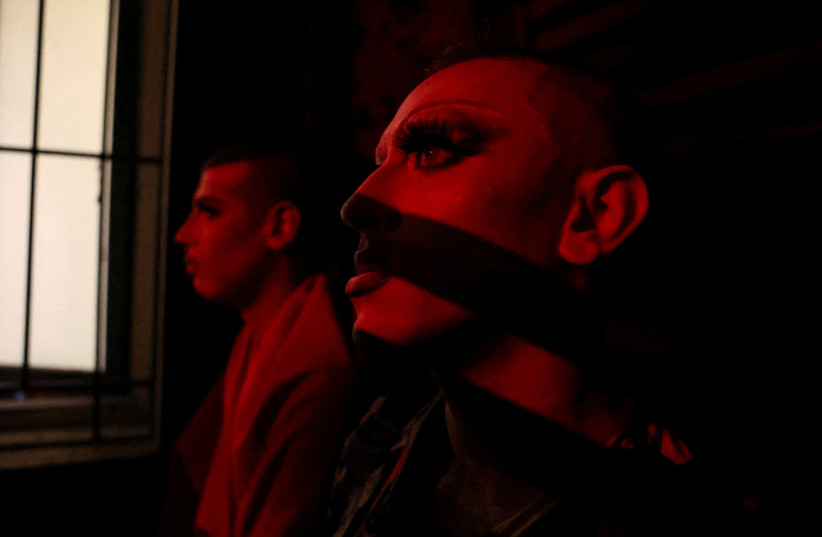A group of men reportedly affiliated with an extremist Christian group recently attacked an LGBTQ-friendly bar in Beirut during a drag show.
“This is Satan’s place, it’s promoting homosexuality in the land of the Lord,” the assailants shouted at patrons in the Om Bar, in the nightlife neighborhood of Mar Mikhael. Video footage shows men yelling, “We have warned you 100 times, this is forbidden. This is only the beginning.” The attackers reportedly smashed up furniture and there were some minor injuries to patrons.
“We are all targets, so we have to fight for everyone”
Tarek Zeidan, director of Helem
The attackers were said to be affiliated with the far-right Christian group Jnoud al-Rab, or “Soldiers of God.”
Although most patrons were physically unharmed, the attack ratcheted up fear in Beirut’s LGBTQ community.
The attack follows a month and a half of “hate campaigns” and “incitement” by Lebanese politicians and religious leaders against the LGBTQ community, Sahar Mandour, Amnesty International’s Lebanon researcher, told The Media Line.

Lebanon’s culture minister tried to ban the Barbie movie over the summer on the grounds that it “contradicts morals and values,” and asked the media to use the term “sexual perversion” to describe homosexuality. The country’s education minister banned a board game in schools because it depicts a rainbow.
Hizbullah leader Hassan Nasrallah said in July that Islamic law requires that every homosexual “should be killed.”
Mandour said the attack on the Om Bar marks “a turning point away from discursive and hidden violence” towards overt assault in Lebanon.
Until now, he said, “homophobia was contained within the discursive space,” but the attackers had now acted to reclaim power and authority, and to define what "an area should host, what space should look like, and what a person should be.”
Mandour said that this is “a real danger.”
Lebanon was once considered a haven for LGBTQ people, especially compared to the rest of the region.
However, in recent years, the community has encountered increasing harassment. After the Om Bar incident, LGBTQ community members responded with solidarity and by highlighting the country’s worsening conditions.
One gay man in Beirut, who asked not to be identified, told The Media Line that the attack “disgusted” him. He said he did not want to stop going out, but he now does so “with more fear.”
Manipulating sentiments
The Lebanese government is using LGBTQ people to divert “attention away from the socioeconomic problems the whole population is facing,” said Tarek Zeidan, director of Helem, a Lebanese organization devoted to the needs of the local LGTBQ community.
Before the Om Bar attack, a group of nine Lebanese legislators introduced a bill to decriminalize homosexuality, but they became targets for intense criticism.
“We are all targets, so we have to fight for everyone,” Zeidan told The Media Line.
Both Zeidan and Mandour both said the problem is not restricted to Lebanon.
“There's an anti-gender movement taking place worldwide,” Mandour said. In the Middle East, the most aggressive incitement has occurred in Lebanon, Iraq, and Yemen.
Although the Om Bar attack stopped when the police arrived, there were no arrests. Mandour said the authorities “should protect events organized by the LGBTQ community” and that the government’s role is to safeguard “the right of every community to exist, express itself, and assemble in peace.”
If the government does not want to raise the banner of equality, “it at least must protect people's rights,” Mandour said.
